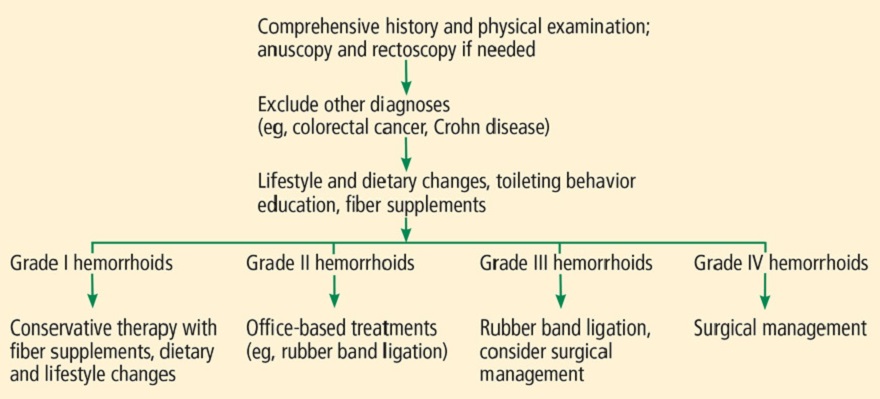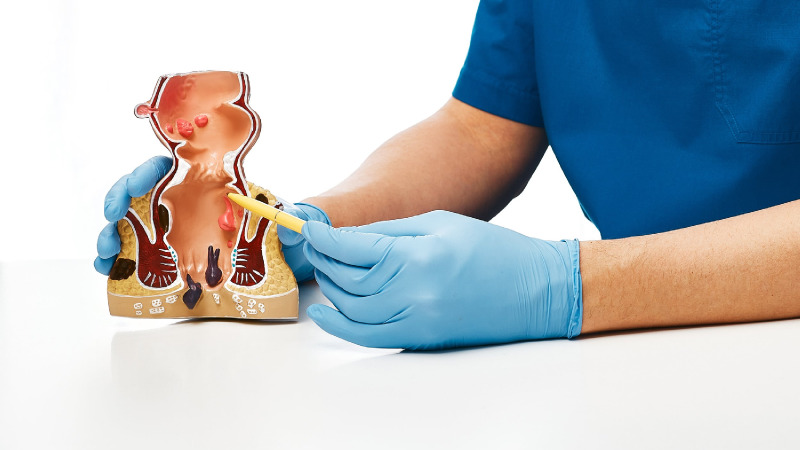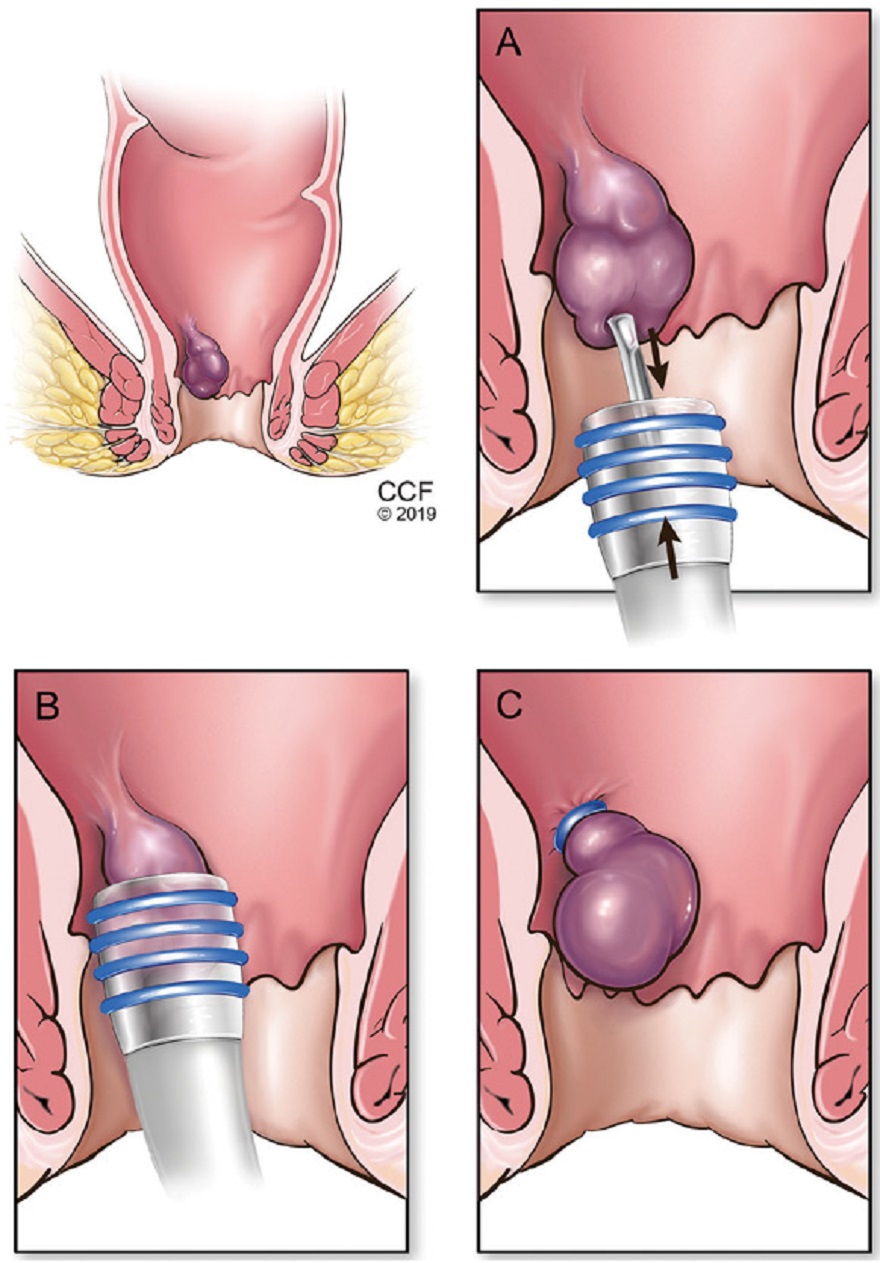As an Amazon Associate I earn from qualifying purchases.
Introduction
Hemorrhoids are a common medical condition that can occur in both men and women. They are uncomfortable and can cause pain, bleeding, itching, and burning. Fortunately, there are treatment options available to help alleviate the symptoms of hemorrhoids and even cure them in some cases. This comprehensive guide will provide you with an overview of the various treatment options available, so you can choose the best one for you.
What are hemorrhoids?
Hemorrhoids are swollen and inflamed veins in the anus and rectum. They can be internal, external, or a combination of both. Internal hemorrhoids are located inside the rectum and may not cause any symptoms. External hemorrhoids are located outside the anus and can be painful and itchy. Hemorrhoids can be caused by constipation, diarrhea, straining during bowel movements, pregnancy, aging, and obesity.
Why is treatment necessary?
Hemorrhoids can cause discomfort, pain, and bleeding, and they can also lead to complications such as anemia and thrombosis. It is essential to seek treatment for hemorrhoids to alleviate the symptoms and prevent complications.
Overview of treatment options
There are various treatment options available for hemorrhoids, including lifestyle changes, medications, and procedures. Lifestyle changes such as a high-fiber diet, drinking plenty of fluids, and avoiding straining during bowel movements can reduce the symptoms of hemorrhoids. Medications such as topical creams, suppositories, and pain relievers can also help alleviate the symptoms. Procedures such as rubber band ligation, sclerotherapy, and hemorrhoidectomy can cure hemorrhoids in severe cases.
In this guide, each treatment option will be discussed in detail, including its benefits, risks, and effectiveness. With this information, you can make an informed decision about the best hemorrhoids treatment option for you.

Lifestyle Changes
Embarrassing, painful, and incapacitating, hemorrhoids can significantly decrease your quality of life. However, with the right treatment options and strategies, you can gain relief and prevent further complications. Changes to your lifestyle play an essential role in the treatment of hemorrhoids and can make a significant difference in managing the condition.
Dietary modifications
Incorporating fiber-rich foods such as fruits, vegetables, and whole grains, into your diet helps prevent constipation and lessens the amount of strain on the rectal area. Adding probiotics to your diet can restore gut health, reduce inflammation, and minimize the risk of infection. Avoiding refined sugars, caffeine, and spicy foods can reduce inflammation and prevent irritation of the rectal area.
Hydration and exercise
Regular exercise, especially mild exercise like walking, helps improve digestion, prevents constipation, and promotes bowel movements, preventing the blood vessels in the rectal area from swelling. Maintaining adequate hydration levels helps soften your stool, making passing bowel movements less painful and more comfortable.
Avoiding prolonged sitting
Prolonged sitting can increase pressure on the rectal area and worsen existing hemorrhoids. If your job requires you to sit for long periods, taking frequent breaks to stretch, walk, or stand up can relieve pressure and improve circulation.
A comprehensive approach to hemorrhoid treatment should include lifestyle changes, such as dietary modifications, regular exercise, and avoiding prolonged sitting. Incorporating these changes into your life can prevent, manage, and alleviate symptoms of hemorrhoids and improve your overall quality of life.

Medical treatments
When it comes to treating hemorrhoids, there are many medical options available. Depending on the severity of your hemorrhoids, your doctor may recommend topical creams and ointments, suppositories, sclerotherapy, or rubber band ligation. Each option offers unique benefits and potential side effects.
Topical creams and ointments
One of the most common treatments for hemorrhoids is over-the-counter creams and ointments. These products contain ingredients such as hydrocortisone or witch hazel that can reduce inflammation and swelling. They often provide temporary relief from pain and itchiness.
Suppositories
Suppositories are another popular treatment for hemorrhoids. These small, lubricated inserts are typically made with ingredients like hydrocortisone or medications that improve blood flow to the affected area. They are often used in conjunction with creams or ointments for maximum relief.
Sclerotherapy
If your hemorrhoids are more severe, your doctor may recommend sclerotherapy. This treatment involves injecting a chemical solution into the hemorrhoid, causing it to shrink and eventually fall off.
Rubber band ligation
Another option for more severe cases is rubber band ligation. During this procedure, a small rubber band is placed around the base of the hemorrhoid, cutting off blood flow and causing it to shrink and fall off within a few days.
No matter which medical treatment you choose, discuss all options with your doctor to ensure you receive the best care for your individual needs.
Surgical Procedures
If non-surgical options fail to alleviate your hemorrhoid symptoms, surgical treatment may be your next option. There are several surgical procedures available for hemorrhoid treatment. In this section, we will provide you with an overview of the most common surgical options.
Hemorrhoidectomy
Hemorrhoidectomy is the most common surgical procedure for treating hemorrhoids. In this procedure, the surgeon removes the hemorrhoid tissue and then sutures the area to stop bleeding. This procedure is typically performed under general anesthesia and can be done as an outpatient procedure.
Transanal Hemorrhoidal Dearterialization (THD)
THD is a minimally invasive procedure that uses Doppler ultrasound to locate and tie off the arteries that supply blood to the hemorrhoid. By cutting off the blood supply, the hemorrhoid shrinks and eventually falls off. THD is typically performed under general anesthesia and may require an overnight hospital stay.
Stapled Hemorrhoidopexy
Stapled hemorrhoidopexy, also known as stapled hemorrhoidectomy, is a minimally invasive procedure that uses a circular stapler to remove the excess tissue and reposition the remaining tissue. This procedure is typically performed under general anesthesia and can be done as an outpatient procedure.
It is important to note that surgical procedures carry a higher risk of complications, such as bleeding and infection, than non-surgical options. Therefore, it is advisable to explore other treatment options before considering surgery. Your doctor will help you determine the best course of treatment for your hemorrhoid symptoms.

Alternative therapies
If you are looking for a non-conventional approach to treating hemorrhoids, alternative therapies may be a good option for you. These treatments include herbal remedies, acupuncture, and the use of essential oils. Keep in mind that while these therapies may offer some relief, they may not work for everyone, and you should always consult with your doctor before starting any new treatment plan.
Herbal remedies
Many individuals have found relief from hemorrhoid symptoms through the use of herbal remedies. Some of the most commonly used herbs include aloe vera, witch hazel, and horse chestnut. Aloe vera has anti-inflammatory properties and can help soothe irritated skin. Witch hazel can reduce swelling and itching and has a cooling effect on the affected area. Horse chestnut contains a compound called aescin, which helps to improve vein health and reduce inflammation.
Acupuncture
Acupuncture is an ancient Chinese practice that involves the insertion of thin needles into specific points on the body. This practice can help to stimulate blood flow and reduce inflammation, which can be beneficial for those with hemorrhoids. Acupuncture sessions typically last between 30 and 60 minutes and may require multiple sessions for optimal results.
Essential oils
Essential oils like tea tree, lavender, and chamomile can be applied topically to the affected area to reduce inflammation and ease discomfort. These oils should always be diluted with a carrier oil before use, as they can be extremely potent. Chamomile can help to soothe irritation and trigger the body’s natural healing processes, while lavender can provide a calming effect and promote relaxation. Tea tree oil has antiseptic properties and can help to prevent infection.
Incorporating alternative therapies into your hemorrhoid treatment plan may offer added relief and improve your overall well-being. As always, be sure to talk to your doctor before making any major changes to your treatment.

Managing Complications
Despite taking preventive measures, hemorrhoids can sometimes lead to complications such as thrombosed hemorrhoids, prolapse, and anal fissures. Here’s what you need to know about each of them:
Thrombosed Hemorrhoids
Thrombosed hemorrhoids occur when a blood clot forms within an external hemorrhoid causing severe pain and discomfort. Over-the-counter painkillers and topical creams can help manage the pain, but it’s recommended that you see a doctor. In some cases, they may need to remove the clot, which provides instant relief.
Prolapse
Prolapse is when an internal hemorrhoid protrudes from the anus. This can cause bleeding, difficulty in bowel movements, and discomfort. You can manage mild cases with increased fiber intake, increased water consumption, and avoiding straining during bowel movements. For severe cases, surgical intervention may be necessary.
Anal Fissures
Anal fissures result from tears in the anal canal lining. This can cause significant pain and bleeding. Treatment options include over-the-counter creams, increased water intake, and increased intake of fiber. In severe cases, surgical intervention can help, but it is typically a last resort.
hemorrhoids can be uncomfortable and frustrating to manage, but you don’t have to suffer in silence. By understanding the different treatment options available, you can find relief and improve your quality of life.

Preventing future occurrence
If you have suffered from hemorrhoids, you might be curious about steps you can take to prevent them from developing again. Luckily, there are several ways to keep them at bay.
Maintaining healthy bowel habits
Developing and maintaining healthy bowel habits is crucial to prevent hemorrhoids. It all starts with a high-fiber diet that includes fresh fruits and vegetables, whole grains, and legumes. You should also drink plenty of water and avoid alcohol and caffeine, which can irritate the digestive system. Regular exercise, like brisk walking or swimming, can also help your bowel movements remain regular.
Avoiding constipation
Constipation strains your bowel movements, which can cause hemorrhoids to flare up. You can avoid this by adding more fiber and fluids to your diet, exercising daily, and avoiding processed foods. If you need to strain or push during bowel movements, you should take a break and wait for the urge to pass.
Regular medical check-ups
Regular medical check-ups can help identify any underlying health conditions that might be contributing to hemorrhoids. You should visit your doctor if you notice any unusual symptoms, such as rectal bleeding, pain, or discomfort.
By following these tips, you can lower your risk of developing hemorrhoids and prevent future occurrences. Remember that prevention is key, and developing healthy habits can help you stay well.
Conclusion
In this comprehensive guide, you have learned about the different treatment options available for hemorrhoids. Remember that each individual experience with hemorrhoids may vary, and it’s important to tailor your treatment to your specific needs.
Tailoring Treatment to Individual Needs
Some of the factors that may influence your treatment choices include the severity of your hemorrhoids, any preexisting medical conditions you have, and your overall health. Take the time to consider your options, and work with your healthcare provider to determine the best course of action.
Consulting a Healthcare Provider
Speaking with a medical professional can be an important step in managing your hemorrhoids. They can help you determine the cause of your hemorrhoids, assess their severity, and recommend an appropriate treatment plan.
Improving Overall Quality of Life
In addition to addressing the symptoms of your hemorrhoids, it’s important to take care of yourself and make lifestyle changes that can improve your overall quality of life. These may include eating a high-fiber diet, staying hydrated, and engaging in regular exercise.
Remember that there are many treatment options available, and you don’t have to suffer in silence. With the right care and attention, you can manage your hemorrhoids and live a comfortable and healthy life.
Amazon and the Amazon logo are trademarks of Amazon.com, Inc, or its affiliates.
